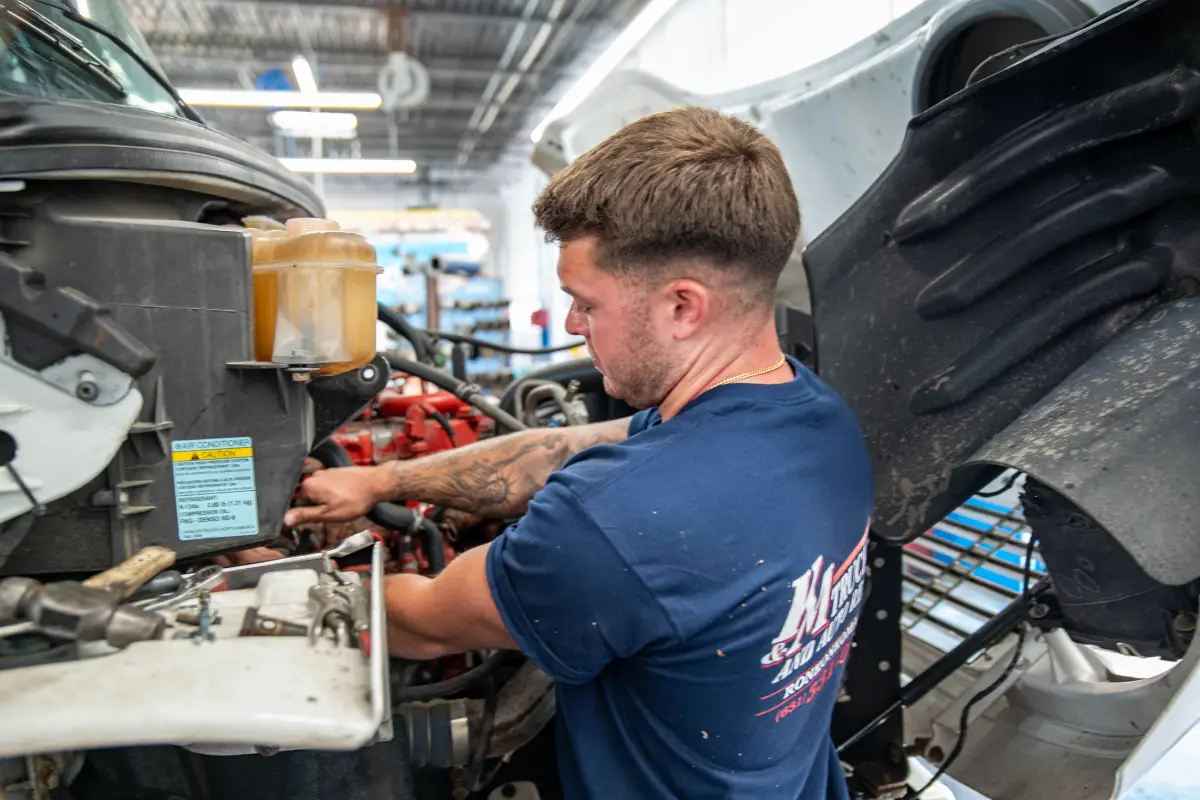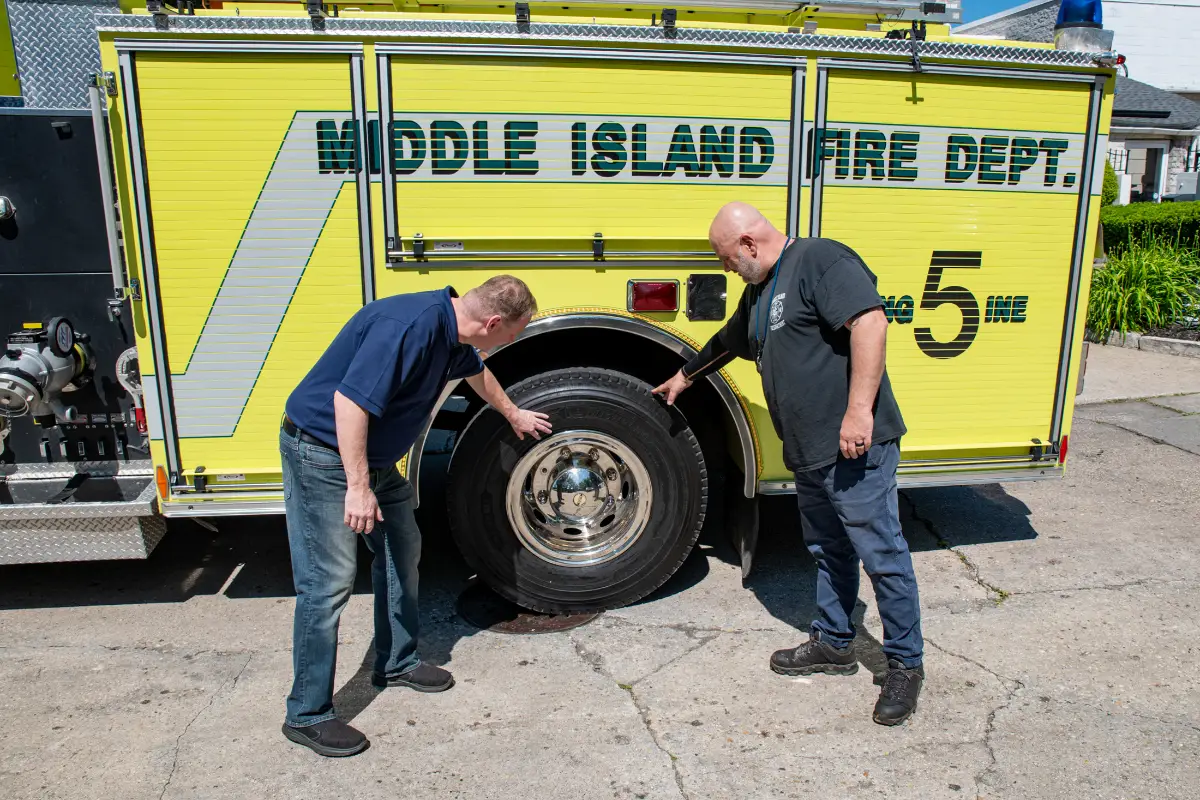The Check Engine Light in Fleet Vehicles: Understanding the Notification and the Necessary Repairs
The Check Engine Light in Fleet Vehicles: Understanding the Notification and the Necessary Repairs
The check engine light notification in fleet vehicles can cause concern for fleet repair professionals and drivers alike. It serves as an important indicator that something is amiss within the vehicle's systems. In this blog, we will delve into the various reasons why the check engine light may illuminate in a fleet vehicle, the repairs that may be required after a diagnostic, and provide tips to prevent check engine light notifications in the future through regular maintenance services.
Understanding the Check Engine Light Notifications
Faulty Oxygen Sensor
A malfunctioning oxygen sensor can trigger the check engine light. This sensor monitors the oxygen level in the exhaust system, and if it fails, it can result in decreased fuel efficiency and increased emissions.
Loose or Faulty Gas Cap
A loose or faulty gas cap may cause a check engine light notification. A proper seal is essential to maintain fuel system pressure, and any issues can lead to fuel vapor leakage, reduced fuel efficiency, and potential damage to emission control systems.
Failing Catalytic Converter
A failing catalytic converter can trigger the check engine light. This crucial component reduces harmful emissions, and if it malfunctions, it can result in decreased engine performance, increased emissions, and potential engine damage.
Ignition System Problems
Issues with the ignition system, such as a faulty spark plug or ignition coil, can cause the check engine light to illuminate. These problems can lead to poor engine performance, reduced fuel efficiency, and further engine damage if left unaddressed.
Repair Services After Diagnostic
Once a diagnostic has been performed to identify the specific cause of the check engine light notification, fleet repair shops can undertake appropriate repair services. These may include:
Sensor Replacement
If a faulty oxygen sensor is identified, replacing it promptly will restore fuel efficiency, reduce emissions, and prevent further vehicle system damage.
Gas Cap Inspection and Replacement
Checking the gas cap for damage or ensuring a proper seal is essential. If a faulty cap is found, it should be replaced to maintain fuel system pressure and prevent vapor leakage.
Catalytic Converter Repair or Replacement
A failed catalytic converter must be repaired or replaced to ensure optimal emission control, maintain engine performance, and meet environmental compliance standards.
Ignition System Maintenance
Repairing or replacing spark plugs, ignition coils, or other related components restores engine performance, enhances fuel efficiency, and prevents engine damage.
Preventing Check Engine Light Notifications in the Future
Regular maintenance services are key to avoiding check engine light notifications in fleet vehicles. Fleet repair shops can offer the following preventive measures:
Routine Inspections
Regular checks of the vehicle’s ignition, fuel, and emissions systems can help catch issues before they trigger a check engine light.
Scheduled Maintenance
Following the manufacturer’s recommended service intervals ensures vital components—such as filters, spark plugs, and sensors—are replaced or serviced at the right time.
Diagnostic Scans
Periodic diagnostic scans can proactively identify emerging issues in the vehicle’s systems, allowing for repairs before warning lights appear.
Driver Education
Educating drivers to report unusual sounds, performance changes, or dashboard indicators helps catch problems early and prevents bigger issues down the line.
Conclusion
The check engine light in fleet vehicles should never be ignored. From minor issues like a loose gas cap to more serious problems such as catalytic converter failure, the light serves as a critical early warning. With timely diagnostics, professional repair services, and a consistent maintenance routine, fleet operators can minimize downtime, avoid costly repairs, and keep their vehicles operating at peak performance.
Services
Medium & Heavy Duty Diesel Services
Beyond repairs, we offer complete service solutions for trucks of all sizes. We perform state and federal DOT inspections, preventive maintenance plans, drivability checks, and full system diagnostics. Need help with your DPF/DEF system, turbo, liftgate, or landing gear? We’ve got it covered. Our goal is simple: keep your vehicles compliant, road-ready, and running strong. Whether you're managing a fleet or just one rig, we’ll keep things moving without the downtime.
Reviews
Customer Testimonials
"Was looking for a new shop to work on my truck and these guys were phenomenal. Took me right in, kept me informed throughout the process and expeditiously had me back up and running. Their knowledge and workmanship is incredible. If you're looking for a great shop to bring your truck to, look no further because these are your guys,"
- Daniel
Contact & Location
Billing
Here at K&M TRUCK REPAIR, we know that any product or service that streamlines your fleet repairs saves you time and money, so we now have cbCharge available. It is a simple and free charge account that consolidates your billing through a secure online portal and provides 30-day payment terms with no interest or late fees. Your fleets repairs and maintenance are completed and billed and emailed from K&M TRUCK REPAIR. Then you get one monthly invoice from cbCharge, similar to a credit card bill.
Apply Here












